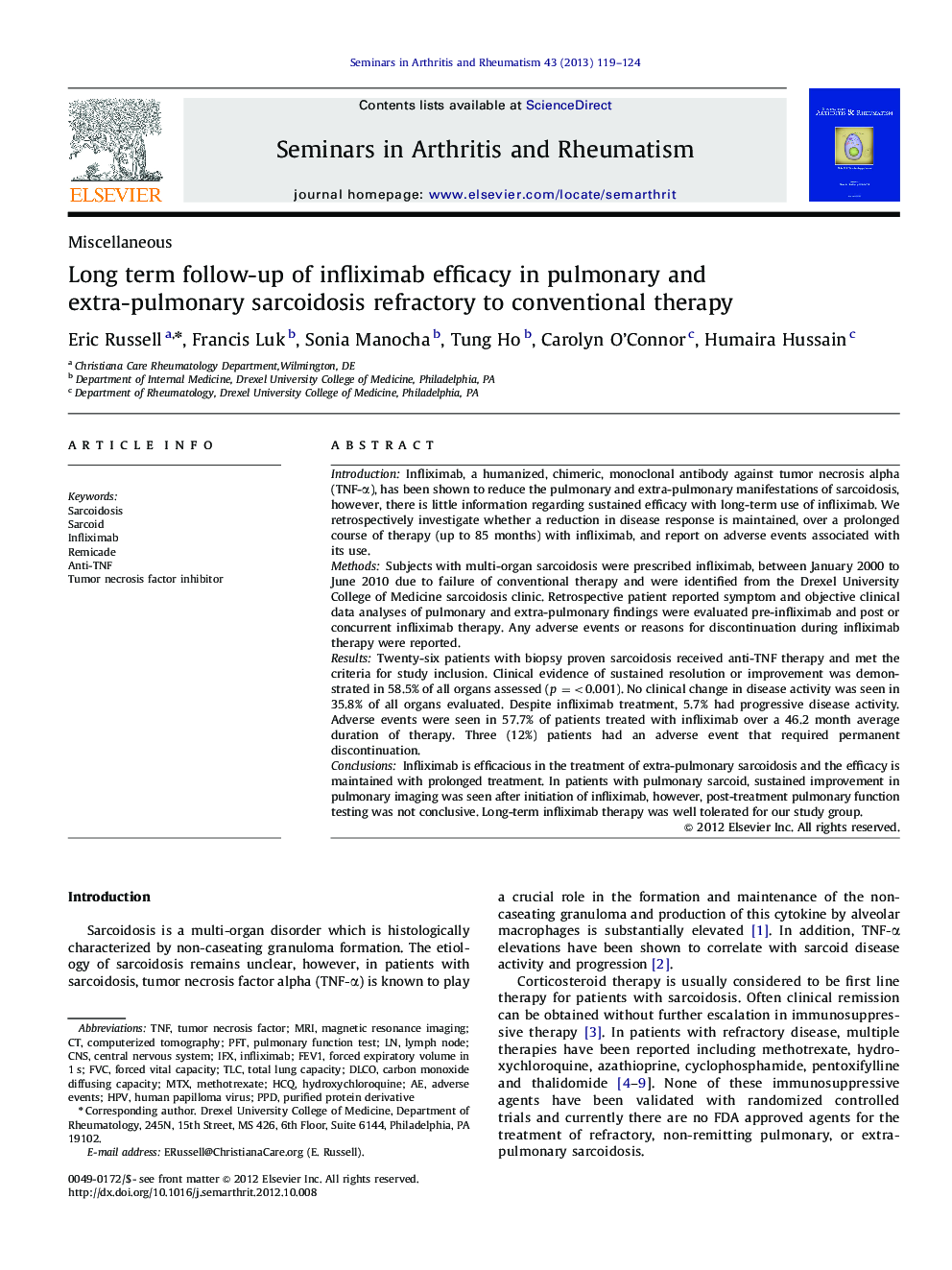| Article ID | Journal | Published Year | Pages | File Type |
|---|---|---|---|---|
| 5887888 | Seminars in Arthritis and Rheumatism | 2013 | 6 Pages |
IntroductionInfliximab, a humanized, chimeric, monoclonal antibody against tumor necrosis alpha (TNF-α), has been shown to reduce the pulmonary and extra-pulmonary manifestations of sarcoidosis, however, there is little information regarding sustained efficacy with long-term use of infliximab. We retrospectively investigate whether a reduction in disease response is maintained, over a prolonged course of therapy (up to 85 months) with infliximab, and report on adverse events associated with its use.MethodsSubjects with multi-organ sarcoidosis were prescribed infliximab, between January 2000 to June 2010 due to failure of conventional therapy and were identified from the Drexel University College of Medicine sarcoidosis clinic. Retrospective patient reported symptom and objective clinical data analyses of pulmonary and extra-pulmonary findings were evaluated pre-infliximab and post or concurrent infliximab therapy. Any adverse events or reasons for discontinuation during infliximab therapy were reported.ResultsTwenty-six patients with biopsy proven sarcoidosis received anti-TNF therapy and met the criteria for study inclusion. Clinical evidence of sustained resolution or improvement was demonstrated in 58.5% of all organs assessed (p =<0.001). No clinical change in disease activity was seen in 35.8% of all organs evaluated. Despite infliximab treatment, 5.7% had progressive disease activity. Adverse events were seen in 57.7% of patients treated with infliximab over a 46.2 month average duration of therapy. Three (12%) patients had an adverse event that required permanent discontinuation.ConclusionsInfliximab is efficacious in the treatment of extra-pulmonary sarcoidosis and the efficacy is maintained with prolonged treatment. In patients with pulmonary sarcoid, sustained improvement in pulmonary imaging was seen after initiation of infliximab, however, post-treatment pulmonary function testing was not conclusive. Long-term infliximab therapy was well tolerated for our study group.
